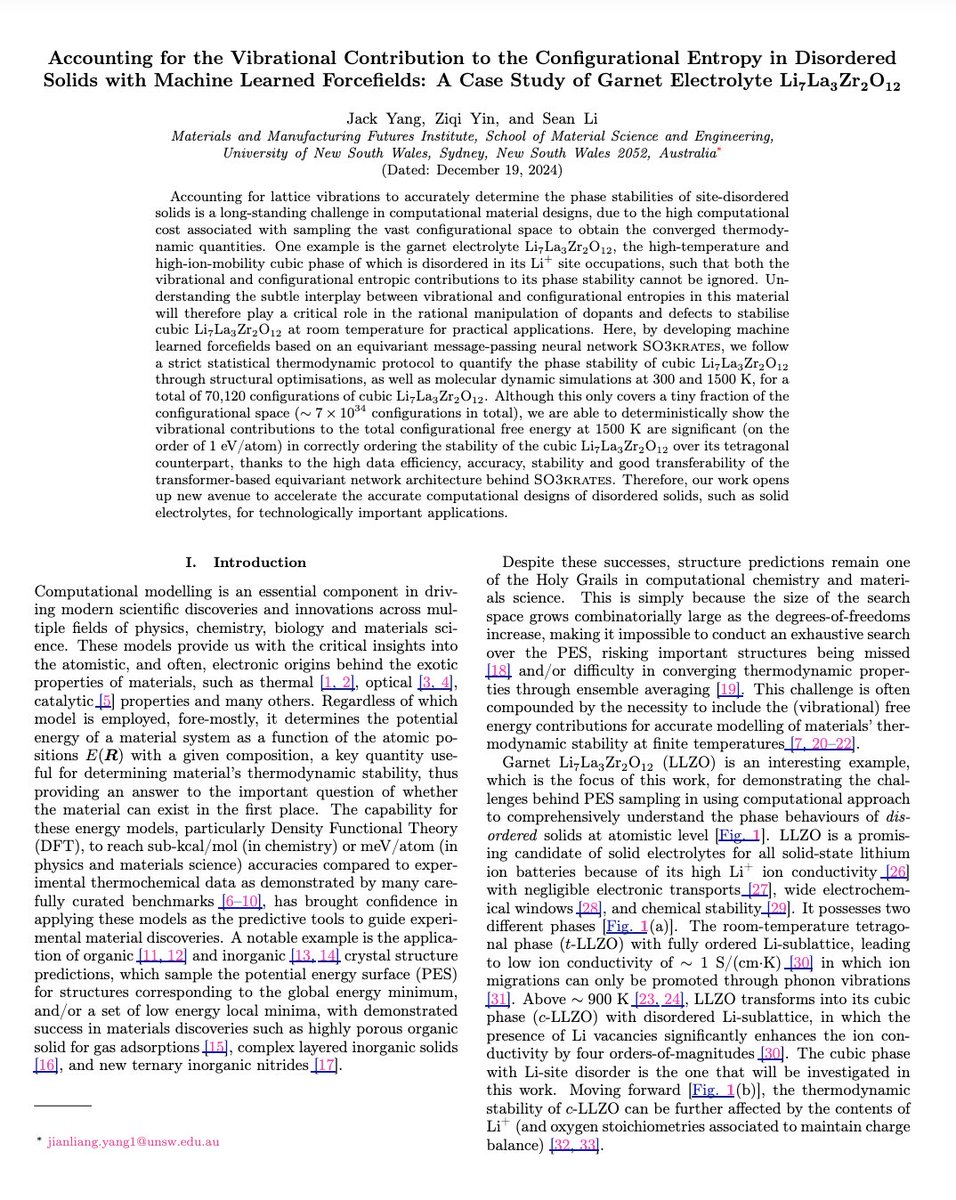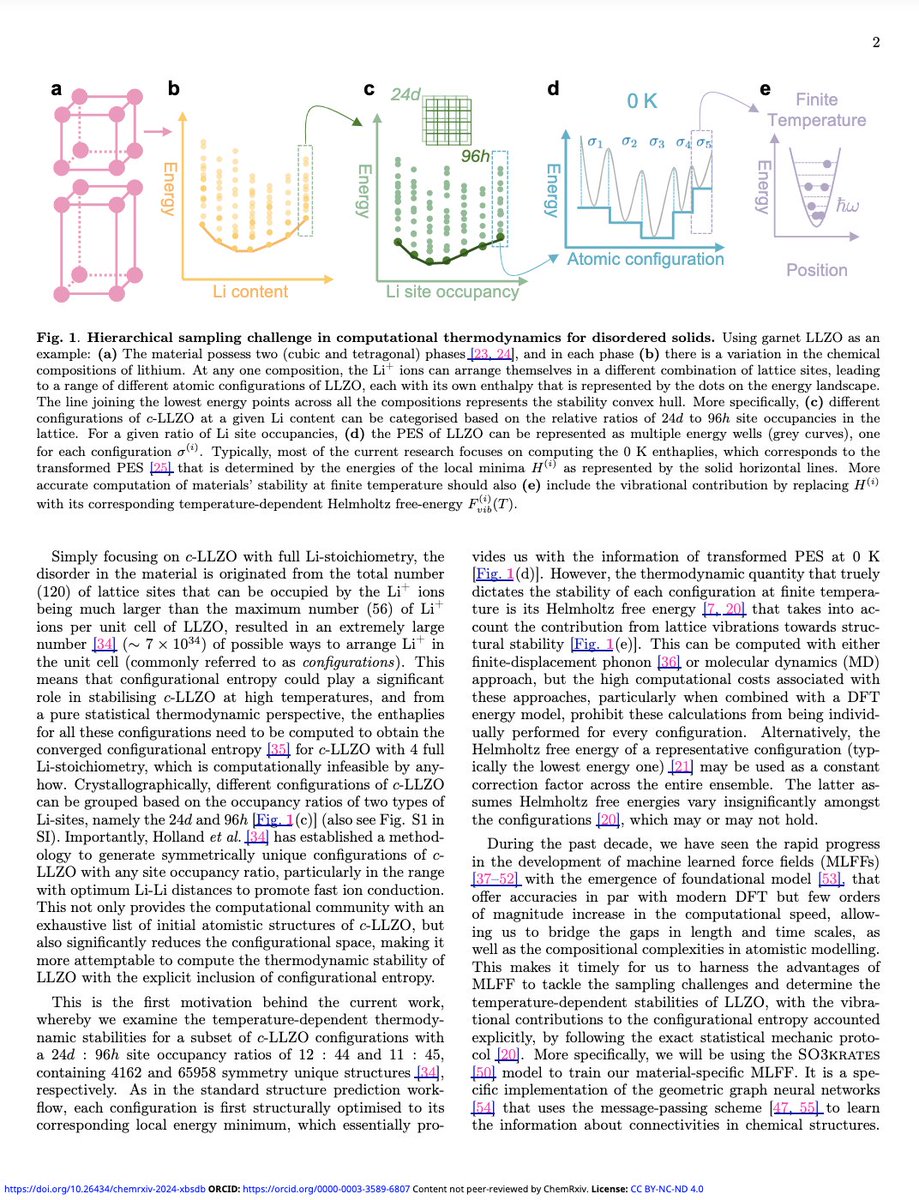
Jack Yang
@jackyang_csp
Lecturer in Material Science and Engineering @UNSW and @MMFI_UNSW Computational chemists. Working on ML-driven material discoveries. Views are my own.
just out @ChemRxiv : "Predictive crystallography at scale: mapping, validating, and learning from 1,000 crystal energy landscapes" Great work by Chris Taylor and Patrick Butler, @pwvbutler 1/n
Just read mine, definitely not a pleasant one whilst staying at home fighting infections. It’s an ongoing endeavour to convince experimentalist on the value and difficulty in developing theory.
Wrapping up the year with a preprint on @ChemRxiv chemrxiv.org/engage/chemrxi…, a piece of work started pre-covid and finally ready to see the world.
In scientific computation, there's a large cultural divide between physics- and ML-based approaches. My latest blog post argues that physics–ML hybrids will be the future, despite offending both fields. (ft. spicy quotes from @pranamanam + some wisdom from @manntis4)
After spending last couple of months reading on diffusion generative models for materials discoveries, I'm wondering are we being taken over by the mathematicians? Surely the maths & models are cool & hard, but I failed to get much inspiration in materials science perspective.😅
Utterly not impressed with the reviewer from @PCCP, after two rounds of reviews and for the first time, I am considering withdrawing my submission from the journal. I rather just leave it on @ChemRxiv.
Microsoft researchers introduce MatterGen, a model that can discover new materials tailored to specific needs—like efficient solar cells or CO2 recycling—advancing progress beyond trial-and-error experiments. msft.it/6012U8zX8
Lots of useful and interesting benchmarking of universal force fields in this paper. This fields really picking up now. Good to see all them doing well on silicon now. arxiv.org/abs/2412.10516
Preprint alert! chemrxiv.org/engage/chemrxi… We trained a transformer-based equivariant neural network to look at some fundamental thermodynamics of disordered solid electrolytes! As you wished, the vibrational free energies are important!


Has only taken a year and a bit to get this one out - LDA for excited states. It's a long and comprehensive treatment that we hope will be useful. [and, importantly, the first time I've got to use combinatorial arguments in a long while] journals.aps.org/prx/abstract/1…
We're recruiting a lecturer in Computational / Digital Chemistry in @UoSChemistry. #compchem #chemjobs Get in touch if you want more information. jobs.soton.ac.uk/Vacancy.aspx?r…
#compchem Anyone has the entire GMTKN55 database stored in a 'searchable format' (xml, yaml, etc)?
I am happy to announce that the Temperature Dependent Effective Potentials (TDEP) code is officially released and published in JOSS! 🎉 TDEP is a code for advanced phonon simulations in materials with a focus on anharmonic properties. More details below: joss.theoj.org/papers/10.2110…
Mucking around on HPC today and wiped out the jax GPU Library, and how the hell I got it to work last time…🤔
Our large collaborative effort shows the impressive range of applicability of foundational ML potentials, developed using only open-source data and software. More than 30 applications, including MOFs, catalysis, water, and more simulated with one model. arxiv.org/abs/2401.00096